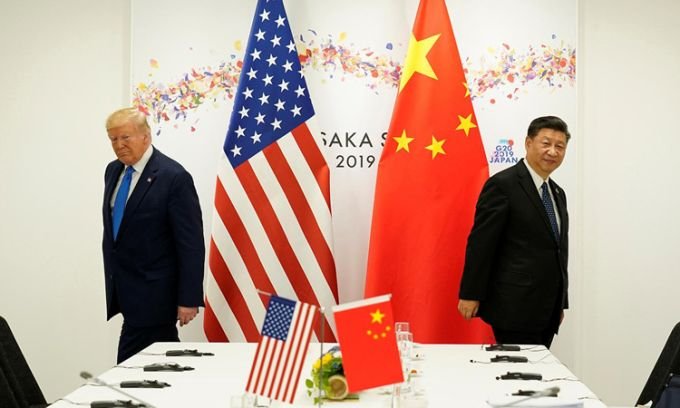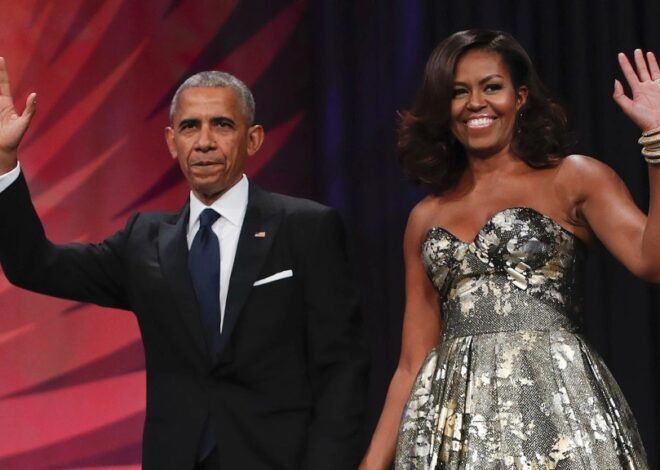
Covid-19 could trigger a ‘Cold War’ between the US and China
The statement `our relationship is at the best time ever` President Donald Trump made on the day of signing the preliminary trade agreement seems to have helped the US and China avoid the risk of trade confrontation.
That same day, health officials in Wuhan city admitted they could not rule out the possibility that the new pneumonia virus that infected 41 people could be transmitted from person to person.
Four months later, Covid-19 has created the most severe global health crisis in a century, infecting more than 4.5 million people and killing more than 300,000, while pushing the global economy deeper into
President Donald Trump (left) and President Xi Jinping at the G20 conference in Osaka, Japan, June 2019.
From supply chain issues and visas to cybersecurity and Taiwan, the world’s two largest economies are constantly confronting each other on many fronts.
On May 14, Trump said that he was disappointed with the way China handled Covid-19 and could retaliate by completely cutting ties with the country.
This tension seems to be increasingly escalating ahead of the US presidential election in November. Trump increasingly tries to blame China for wanting to take advantage of Covid-19 to make him lose the election.
`Covid-19’s attack on both the US and China appears to have worsened the bilateral relationship and pushed it to the brink of collapse. Since the normalization of relations in 1979, the two countries have never fallen
While the current trade deal reduces the risk of new tariffs, most other disputes between the two countries remain the same or are worse than at the worst of the conflict a year ago.
At the same time, Chinese diplomats and media officials are constantly promoting conspiracy theories that an American soldier brought nCoV to Wuhan when he came here to attend the Military Olympics in late 2019, accusing politicians
The crisis has also prompted hawks on both sides to relentlessly hurl threats that have rarely been taken seriously for decades.
The pandemic has also revived tensions over old issues such as Taiwan being prevented by China from participating in the World Health Assembly (WHA) as an observer.
Washington and Beijing have also expelled dozens of each other’s reporters in recent months.
The growing conflict has also made some Chinese officials lower their expectations for another trade deal with Trump, whom they were once happy to consider a pragmatist leader not too concerned about human rights issues
`A president like Joe Biden will be more realistic and less emotional. Instead of confronting China with unclear goals, the Biden administration will apply pressure in some areas but remain tough on issues
Much will depend on whether Trump’s phase one trade deal with Xi holds through the election.
Trump and Mr. Xi probably do not want a tariff war to happen when the pandemic is pushing the two countries’ economies into crisis.
James Green, senior adviser for geopolitical consulting firm McLarty Associates in the US, pointed to a phone call earlier this month between the top two negotiators for the US and China as evidence that both sides

President Donald Trump and Chinese Vice Premier Liu He (right) in Washington, USA, on January 15.
However, the new wars have only deepened the suspicions between the two countries.
Trump on May 14 said he was `looking at` Chinese companies trading on the NYSE and Nasdaq stock exchanges that did not follow US rules.
Late on May 14, the US Senate passed the Uyghur Human Rights Policy Act, calling for sanctions against those responsible for mass detention of Uyghurs and other Muslim groups in Xinjiang.
Global Times said on May 15 that China is considering countermeasures, targeting US officials such as Missouri Attorney General Eric Schmitt, who sued Beijing for compensation for Covid-19, and two senators.
Professor Thi An Hoang said that efforts to divide the world’s two largest economies appear `more widely and less selectively` than before, when both countries `prioritized issues
`The US-China relationship has gradually reached its worst state in decades and is only becoming more tense,` Mr. Thoi said.


